Are you ready to take control of your medical history? Requesting a transfer of your medical records can feel daunting, but it doesn't have to be! With the right letter template, you can simplify the process and ensure your important health information is seamlessly moved to your new provider. Curious about how to get started? Keep reading to discover the essential steps for crafting the perfect medical records transfer request!
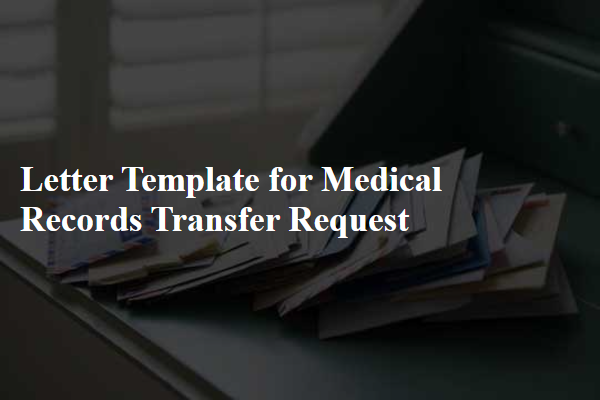
Patient Identification Information
Patient identification information is crucial for ensuring accurate medical records transfer. This includes full name (first, middle, last), date of birth (formatted as month/date/year), and social security number (to uniquely identify the patient). Address details, including street name, city, state, and zip code, provide geographical context. Phone number is vital for communication. The patient's medical record number assigned by the healthcare provider enhances traceability. Previous provider's name and contact information (address, phone number) ensure recipient authority verification. Additionally, specific dates of treatment and relevant medical conditions assist in streamlining the transfer process for continuity of care.
Recipient Healthcare Provider Details
The initiation of a medical records transfer requires precise information detailing the recipient healthcare provider's essentials. The provider's name, often a significant hospital or clinic, should be explicitly stated alongside their designated address, including street, city, state, and ZIP code for accurate delivery. The phone number of the provider's office ensures seamless communication during the transfer process, allowing for queries or follow-ups if necessary. It is also vital to include a fax number if electronic transmission is applicable. Identifying the specific department, such as "Medical Records Department" or "Patient Services," can further expedite the transfer procedure. Accurate detailing of these recipient elements facilitates a smooth and efficient transfer of vital health information between healthcare entities.
Reason for Request
Medical records transfer requests are critical for ensuring continuity of care among healthcare providers. Patients may request the transfer of their medical records for various reasons, such as changing physicians, seeking specialized treatments at different hospitals like Johns Hopkins Hospital, or moving to a new geographic location. Accurate medical history, including previous diagnoses, treatments, medications, and allergies, is essential for new healthcare providers to deliver effective care. Timely access to these records, often a legal requirement under HIPAA (Health Insurance Portability and Accountability Act), protects patient privacy while allowing for comprehensive health assessments. Furthermore, transferring records facilitates the management of chronic conditions, ensuring optimal treatment plans for conditions like diabetes or heart disease.
Authorization and Consent
A medical records transfer request requires explicit authorization and consent to ensure confidential patient information, governed by laws such as HIPAA (Health Insurance Portability and Accountability Act), is shared appropriately. The request form should include essential details such as the patient's full name, date of birth, and Social Security number for accurate identification. Specify the current healthcare provider's name and address, along with the intended recipient's name and contact details, ensuring clarity in the transfer process. The patient must sign and date the form, granting permission for the release of records, which may include sensitive information like diagnoses, treatment histories, and laboratory results. Additional sections may note any limitations on the type of information to be transferred or an expiration date for the authorization, ensuring compliance with legal standards.
Contact Information for Queries
Medical records transfer requests involve crucial information exchange, ensuring patient confidentiality and compliance with regulations. Healthcare providers typically require contact details for queries, including a dedicated phone number for follow-up questions regarding the transfer process or specific records. Additionally, an email address may be provided for quick correspondence and updates on the status of the request. Such contact points facilitate communication between health care institutions and patients, enabling timely responses. Properly documented contact information assures smooth transaction between entities, especially when dealing with sensitive health data transfers in compliance with HIPAA regulations.

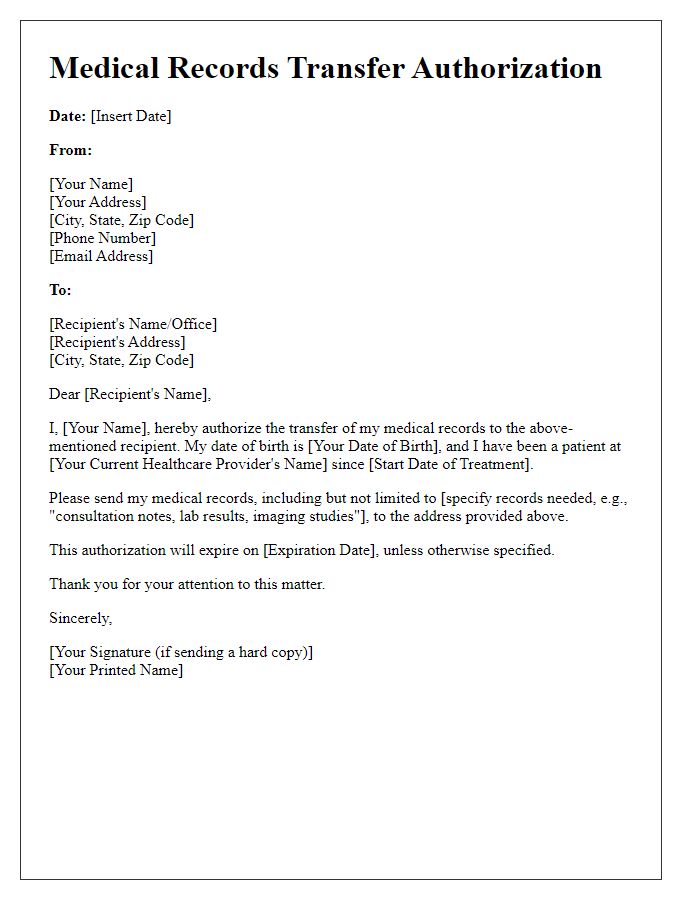
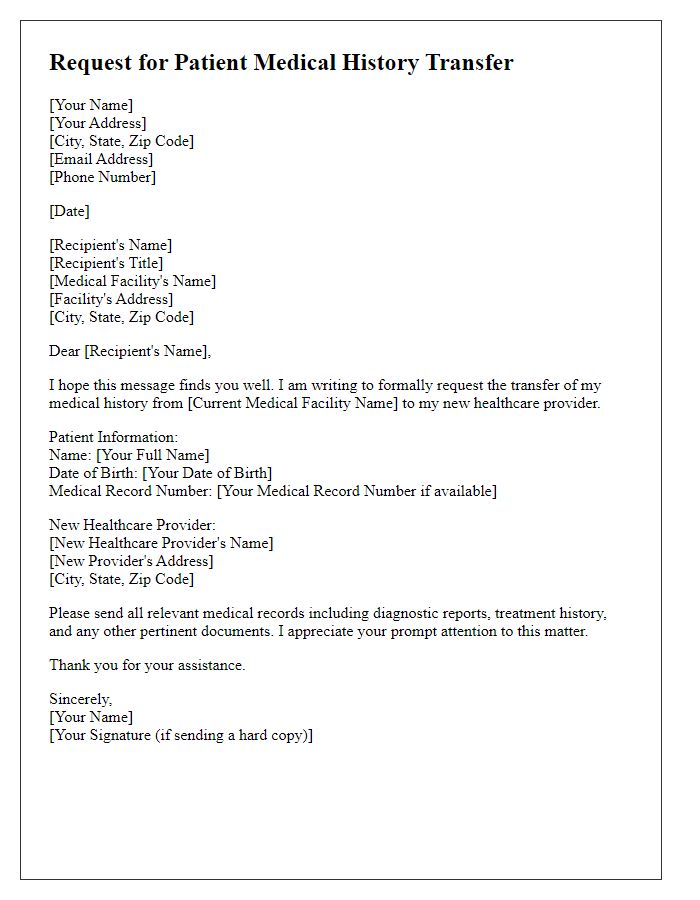
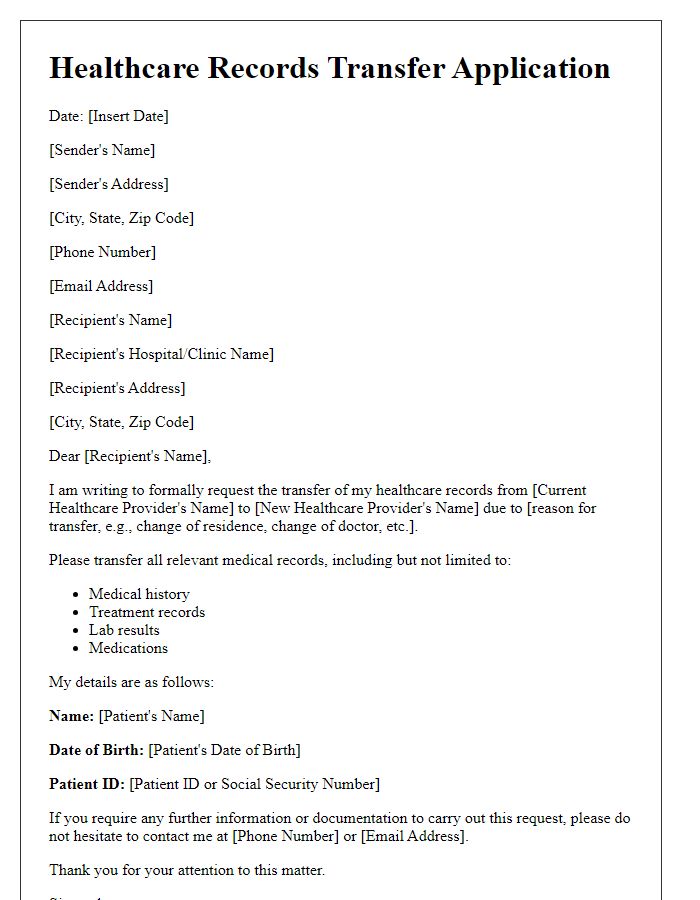
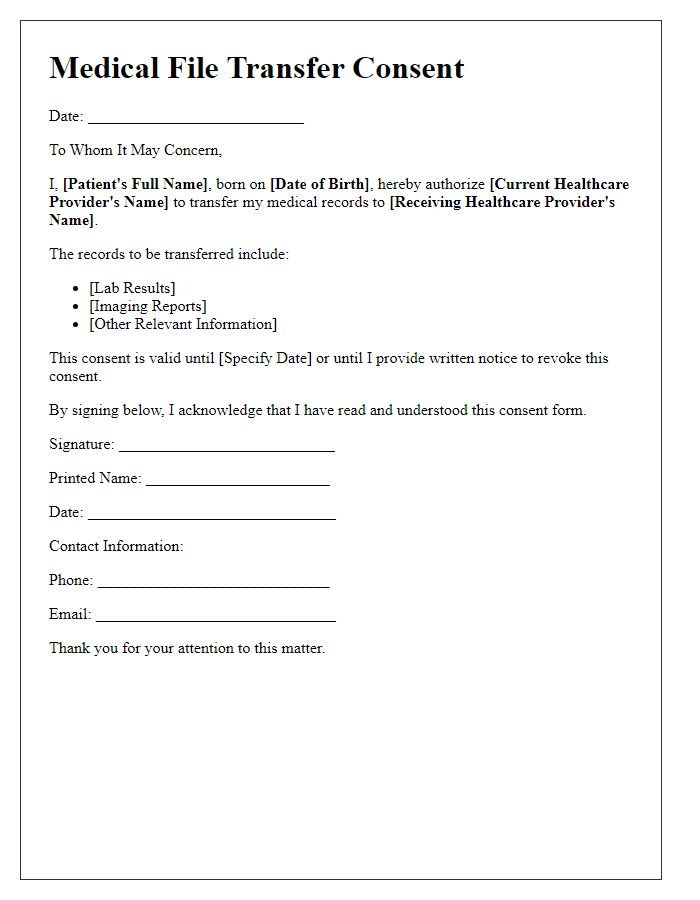
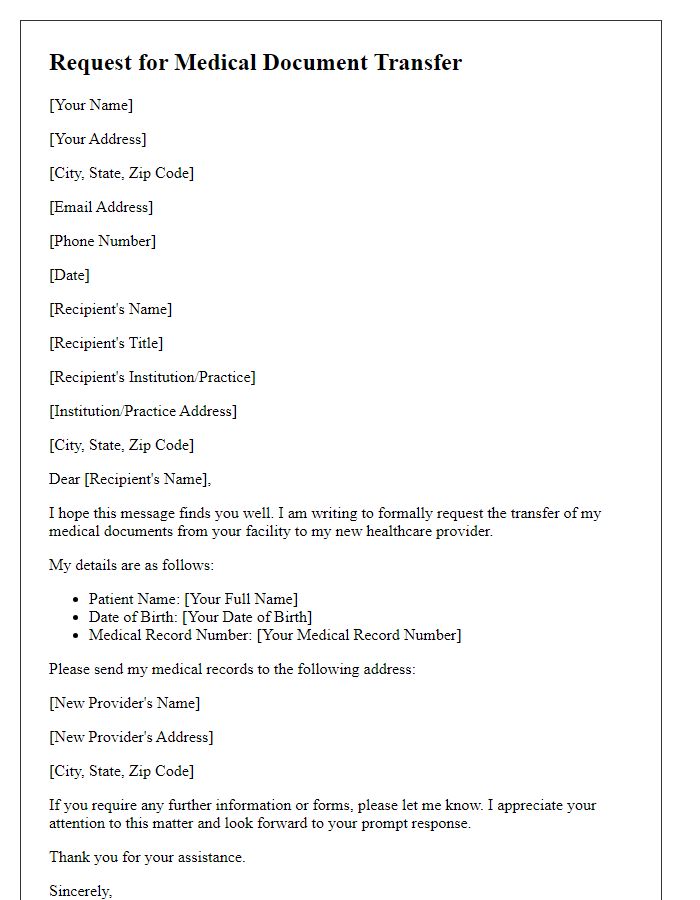
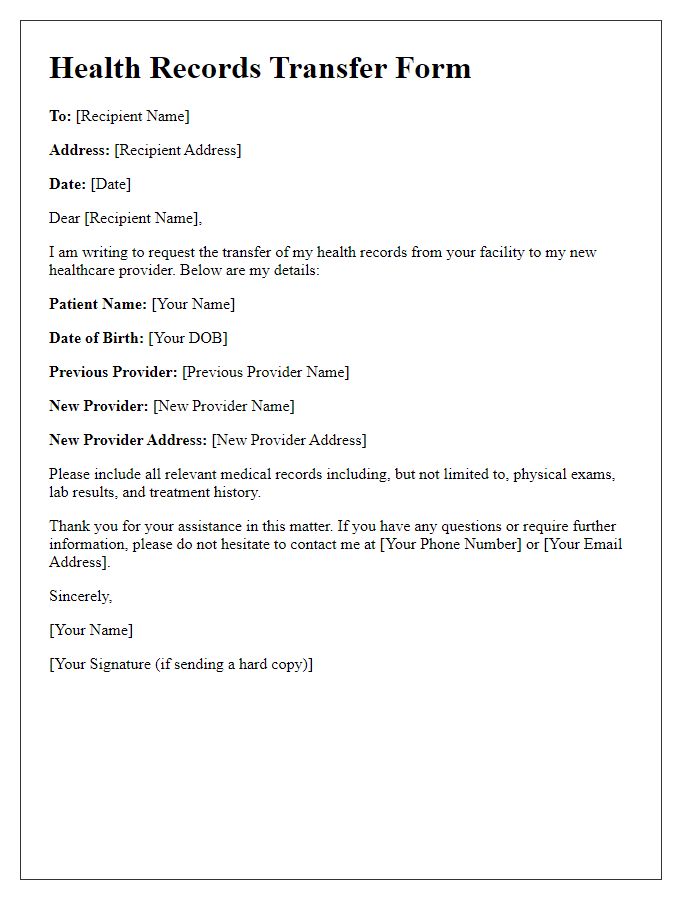
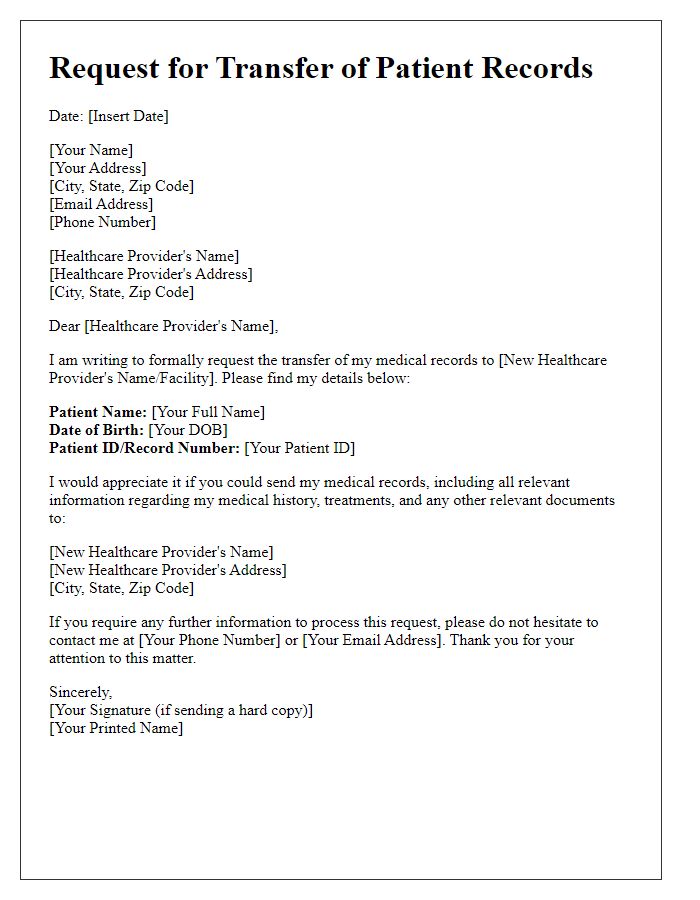
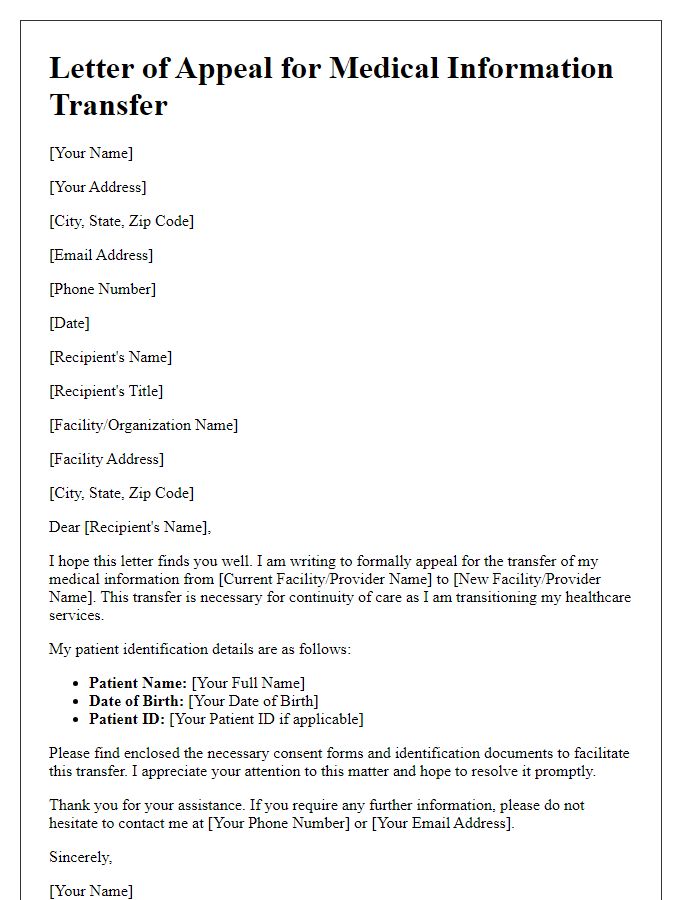
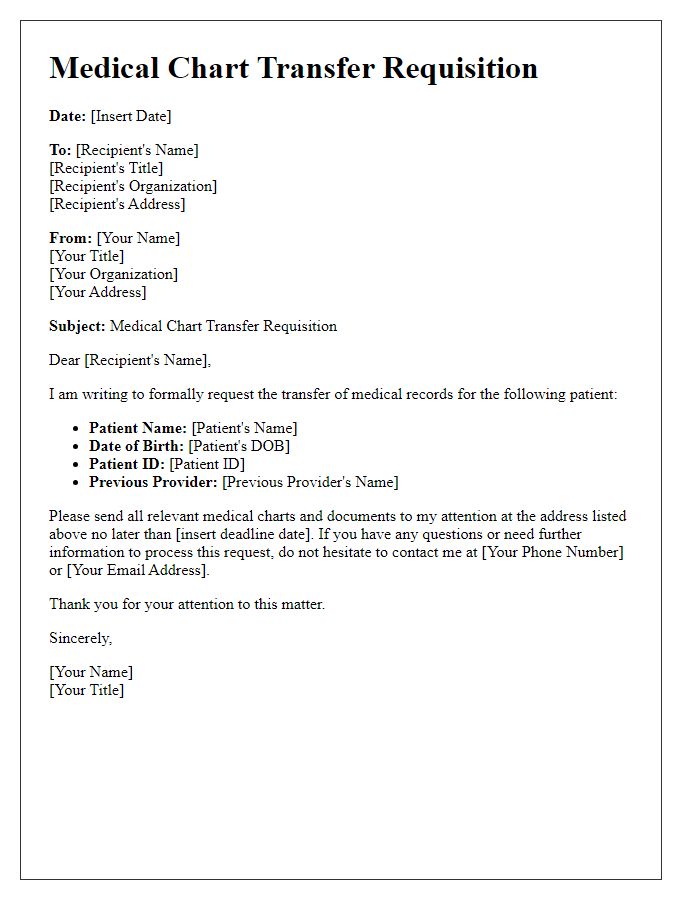
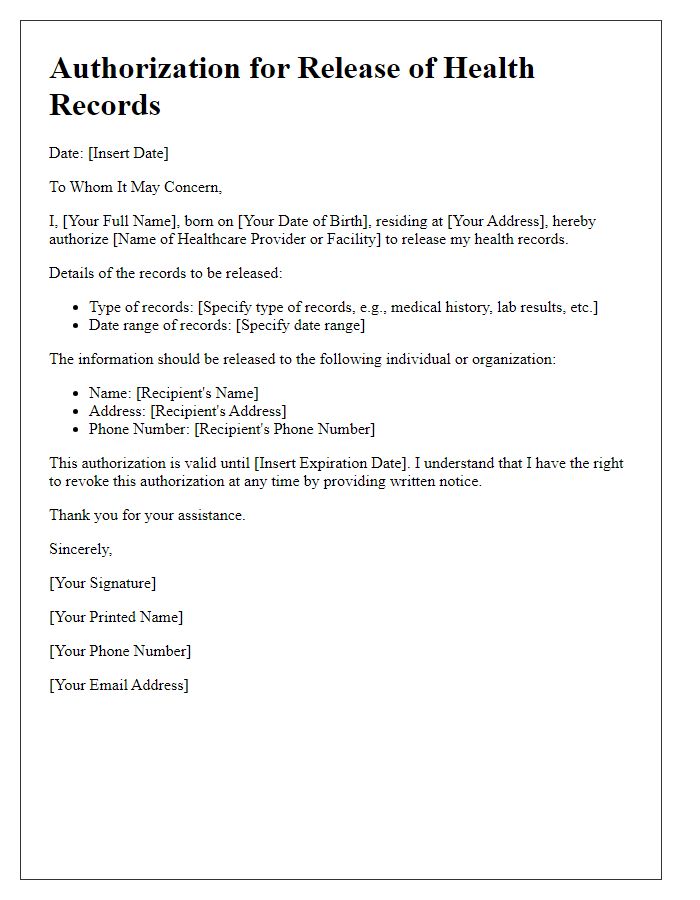


Comments